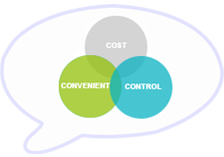
Asphalt recycling at BMT
As we know, although recycling technology has been widely applied in many countries around the world, but this technology is still a new thing for our country. The use of RAP is still in the state “trial paving”, but it’s not actually applied in road construction. Due to the benefits for natural resources, environment, economy and society given by recycling, the BMT Company has done a research program called “Selection and Application of asphalt recycling in Vietnam for 5 years.
According to the analysis of the advantages and disadvantages of each recycling technology based on scientific reports in the world such as the European Asphalt Pavement Association (EAPA), National Asphalt Pavement Association (NAPA), Federal Highway Administration (FHWA) and reference the use of RAP in the world, especially in developed countries such as Germany, USA, Australia, Japan, Canada, the application of hot recycling in plant is the most urgent and appropriate technology in our country.
Fig. 1 – Asphalt recycling with batch mixing plant at BMT
Fig. 2 – Asphalt recycling with continuous mixing plant at BMT
1) Benefits for natural resources and the environment: hot recycling in plant allows reusing a huge amount of RAP with industry scale. It can help consume the solid industrial waste discharged from the old pavement, save stone and bitumen resource for our country.
2) The scope of application: hot recycling in plant is not only stopped on road maintenance and repairs, upgrade a specific pathway, but it can also be used to make completely new projects. It allows using RAP for any course in the pavement structure, from the base/subbase to the surface course.
3) Asphalt design: the reclaimed hot mix design is quietly simple as for traditional hot mix asphalt.
4) Quality control: the quality of HMA containing RAP can be more easily controlled in comparison to the other recycling methods.
5) Paving: the construction using HMA containing RAP is quietly paved traditionally. It does not require any specific machine as recycling in place.
6) Environmental hygiene: all process is done with cyclical technology reducing emission by baghouse-filters. Besides, mixing plants are located far from residential areas so this is an absolutely green, non-polluting technology.
7) Economic and social benefits: hot recycling in plant saves up to 30% the cost of road construction, depending on the percentage of RAP used in HMA. This number is a great benefit for our country nowadays. In addition, the application of this technology can replace the old methods in repairing and upgrading roadways, which concerns to increase the thickness of pavements, leading to flood in the residential areas near by the roads during rainy season.
Fig. 3 – Asphalt recycling process in plant of BMT
Currently BMT was fully equipped with technology, facilities and manpower to apply hot mix recycling in plant. Besides, the company also has received agreement for trial paving on National Highway 1A according to 8620/BGTVT-KHCN decision dated 20.08.2013 of the Minister of Ministry of Transport.
Basically hot mix recycling in BMT plants follows next processes:
1) Scratch removing old asphalt layers from the existing pavements;
2) Transportation of materials to mixing plant and storage in the repository;
3) Crushing RAP and classifying by appropriate aggregate sizes;
4) Conveying RAP on hopper and transporting to the mixer to mix with virgin materials according to the gradation designed from the laboratory;
5) Transporting asphalt mixture to the construction site for paving.
Dr. Vo Dai Tu










